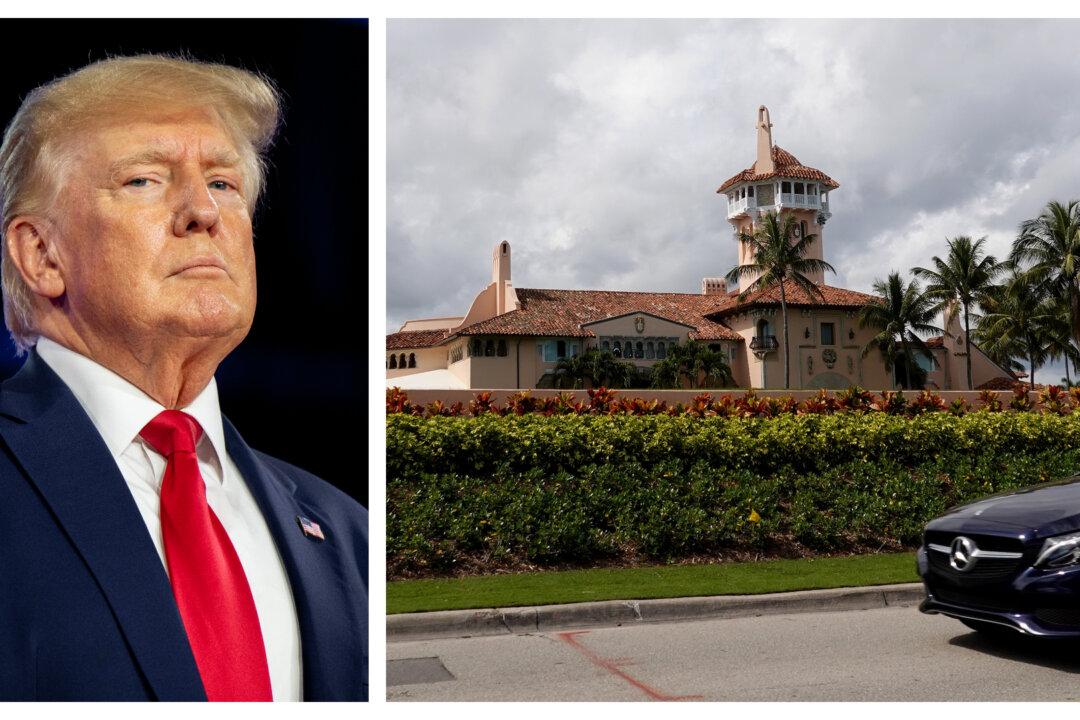A former assistant director in the FBI said he believes the affidavit used to obtain a search warrant of former President Donald Trump’s Mar-a-Lago reveals the government has “no case” against him.
“We now know why the DOJ wanted the affidavit—which is supposed to articulate the probable cause needed for a legitimate search—to be kept under seal,” wrote Kevin R. Brock, the former assistant director of intelligence for the FBI and principal deputy director of the National Counterterrorism Center (NCTC), in an opinion piece published Sunday.





